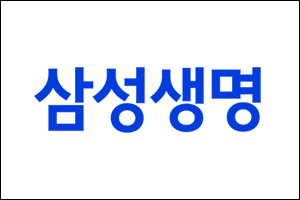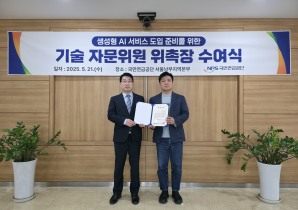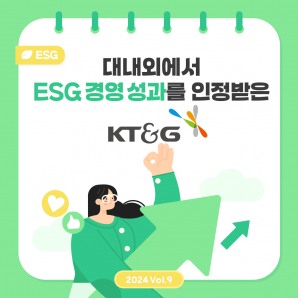According to industry sources on the 4th, Korean Air received final approval from the US DOJ, the last competition authority for corporate merger reviews with Asiana, the day before. It has been nearly 4 years since Korean Air declared its intention to acquire Asiana, which was in financial difficulties, in November 2020.
Korean Air has already passed the merger review by 13 competition authorities (Turkey, Taiwan, Thailand, the Philippines, Malaysia, Vietnam, Korea, Singapore, Australia, China, the UK, Japan, and Europe) excluding the US.
Korean Air transferred four European routes (Rome, Italy; Paris, France; Frankfurt, Germany; Barcelona, Spain) that are raising concerns about monopoly to T'way Air, a low-cost domestic carrier. Afterwards, it decided to sell Asiana's cargo division to Air Incheon. Five popular routes in the U.S., including New York, Los Angeles (LA), Seattle, San Francisco, and Honolulu, were also transferred to Air Premia, a LCC. Currently, seven Japanese routes (Seoul-Osaka, Sapporo, Nagoya, Fukuoka, Busan-Osaka, Sapporo, Fukuoka), which have many overlapping routes with Asiana, have also decided to be additionally given to LCCs.
On the 11th, Korean Air will participate in Asiana’s third-party allocation paid-in capital increase and acquire a 63.88% stake. It plans to invest KRW 800 billion out of the total acquisition price of KRW 1.5 trillion, excluding the down payment and interim payment. The final merger with Asiana will be completed when the acquisition price is paid. It is expected that Asiana will be a subsidiary for the next two years and cabin crew exchanges will begin. After that, personnel exchanges for management and maintenance positions will continue. Once the integration is complete, Asiana’s name will be reorganized into a single brand, “Korean Air.” Previously, Korean Air announced that it would launch an integrated brand in October 2026.
With the merger of the only full-service carriers (FSCs) in Korea, Korean Air will be reborn as a ‘mega carrier’ airline ranked in the top 10 in the world. As of last year, Korean Air had sales of KRW 16.1 trillion, and Asiana had sales of KRW 7.6 trillion. In this case, the combined Korean Air’s sales will exceed KRW 24 trillion. The LCC industry is also bound to change. This is because Asiana’s LCC subsidiaries Air Busan and Air Seoul will be absorbed into Korean Air’s LCC subsidiary Jin Air. The combined sales of the three LCCs last year were approximately KRW 2.5 trillion, exceeding the industry leader Jeju Air (KRW 1.7 trillion).
In terms of aircraft fleet status, Korean Air will increase its fleet to 136 passenger aircraft and 23 cargo aircraft, Asiana will increase its fleet to 68 passenger aircraft, Jin Air to 30 aircraft, Air Busan to 21 aircraft, and Air Seoul to 6 aircraft, for a total of 284 aircraft.
Son Wontae (tellme@fntimes.com)






























![[ECM] '사천피' 무색, 'IPO 오버프라이싱' 수두룩](https://cfnimage.commutil.kr/phpwas/restmb_setimgmake.php?pp=006&w=69&h=45&m=5&simg=2025120500300303419a837df6494123820583.jpg&nmt=18)
![양 측 한 발 물러섰지만 시간 당 공임 인상률 합의 부결…정비업계·보험업계 의견 첨예 [자동차보험 정비수가]](https://cfnimage.commutil.kr/phpwas/restmb_setimgmake.php?pp=006&w=69&h=45&m=5&simg=20230310104359087848a55064dd111222114027.jpg&nmt=18)
![[DQN] 토스증권, 해외주식 수수료 수익 1위 ‘우뚝’…‘전통강자’ 미래에셋 제쳐](https://cfnimage.commutil.kr/phpwas/restmb_setimgmake.php?pp=006&w=69&h=45&m=5&simg=20251205154521066590f4390e77d12116014370.jpg&nmt=18)

![강태영號 농협은행, 부행장 인사 키워드 '69년생·전문성·생산적금융' [2026 농협금융 인적쇄신 - 은행]]](https://cfnimage.commutil.kr/phpwas/restmb_setimgmake.php?pp=006&w=69&h=45&m=5&simg=2025120105515000450b4a7c6999c121131189150.jpg&nmt=18)
![[프로필] 이석원 신한자산운용 사장 후보자…국민연금 기금운용본부 출신 운용 전문가](https://cfnimage.commutil.kr/phpwas/restmb_setimgmake.php?pp=006&w=69&h=45&m=5&simg=2025120515024403049179ad43907222110701.jpg&nmt=18)
![이찬우號 농협금융, 부사장 인사 키워드 '내부통제·리스크관리'…각 부문 전문가 발탁 [2026 농협금융 인적쇄신 - 은행]]](https://cfnimage.commutil.kr/phpwas/restmb_setimgmake.php?pp=006&w=69&h=45&m=5&simg=2025120513493707255300bf52dd2121131180157.jpg&nmt=18)














![[카드뉴스] KT&G, 제조 부문 명장 선발, 기술 리더 중심 본원적 경쟁력 강화](https://cfnimage.commutil.kr/phpwas/restmb_setimgmake.php?pp=006&w=298&h=298&m=1&simg=202509241142445913de68fcbb3512411124362_0.png&nmt=18)
![[카드뉴스] KT&G ‘Global Jr. Committee’, 조직문화 혁신 방안 제언](https://cfnimage.commutil.kr/phpwas/restmb_setimgmake.php?pp=006&w=298&h=298&m=1&simg=202503261121571288de68fcbb3512411124362_0.png&nmt=18)


![[카드뉴스] 국립생태원과 함께 환경보호 활동 강화하는 KT&G](https://cfnimage.commutil.kr/phpwas/restmb_setimgmake.php?pp=006&w=298&h=298&m=1&simg=202403221529138957c1c16452b0175114235199_0.png&nmt=18)
![[신간] 고수의 M&A 바이블](https://cfnimage.commutil.kr/phpwas/restmb_setimgmake.php?pp=006&w=81&h=123&m=5&simg=2025091008414900330f8caa4a5ce12411124362.jpg&nmt=18)
![[신간] 리빌딩 코리아 - 피크 코리아 극복을 위한 생산성 주도 성장 전략](https://cfnimage.commutil.kr/phpwas/restmb_setimgmake.php?pp=006&w=81&h=123&m=5&simg=2025032814555807705f8caa4a5ce12411124362.jpg&nmt=18)
![[서평] 추세 매매의 대가들...추세추종 투자전략의 대가 14인 인터뷰](https://cfnimage.commutil.kr/phpwas/restmb_setimgmake.php?pp=006&w=81&h=123&m=5&simg=2023102410444004986c1c16452b0175114235199.jpg&nmt=18)

![[신간] 조금 느려도 괜찮아...느림 속에서 발견한 마음의 빛깔](https://cfnimage.commutil.kr/phpwas/restmb_setimgmake.php?pp=006&w=81&h=123&m=5&simg=20251105082239062852a735e27af12411124362.jpg&nmt=18)

![[AD] 기아 ‘PV5’, 최대 적재중량 1회 충전 693km 주행 기네스 신기록](https://cfnimage.commutil.kr/phpwas/restmb_setimgmake.php?pp=006&w=89&h=45&m=1&simg=20251105115215067287492587736121125197123.jpg&nmt=18)
![[카드뉴스] KT&G, 제조 부문 명장 선발, 기술 리더 중심 본원적 경쟁력 강화](https://cfnimage.commutil.kr/phpwas/restmb_setimgmake.php?pp=006&w=89&h=45&m=1&simg=202509241142445913de68fcbb3512411124362_0.png&nmt=18)
![[AD]‘황금연휴에 즐기세요’ 기아, ‘미리 추석 페스타’ 이벤트 실시](https://cfnimage.commutil.kr/phpwas/restmb_setimgmake.php?pp=006&w=89&h=45&m=1&simg=20250903093618029117492587736121166140186.jpg&nmt=18)
![[AD]‘패밀리카 선두 주자’ 기아, ‘The 2026 카니발’ 출시](https://cfnimage.commutil.kr/phpwas/restmb_setimgmake.php?pp=006&w=89&h=45&m=1&simg=2025081810452407346749258773621116810840.jpg&nmt=18)
![[AD] ‘상품성↑가격↓’ 현대차, 2025년형 ‘아이오닉 5’·‘코나 일렉트릭’ 출시](https://cfnimage.commutil.kr/phpwas/restmb_setimgmake.php?pp=006&w=89&h=45&m=1&simg=202505131018360969274925877362115218260.jpg&nmt=18)



